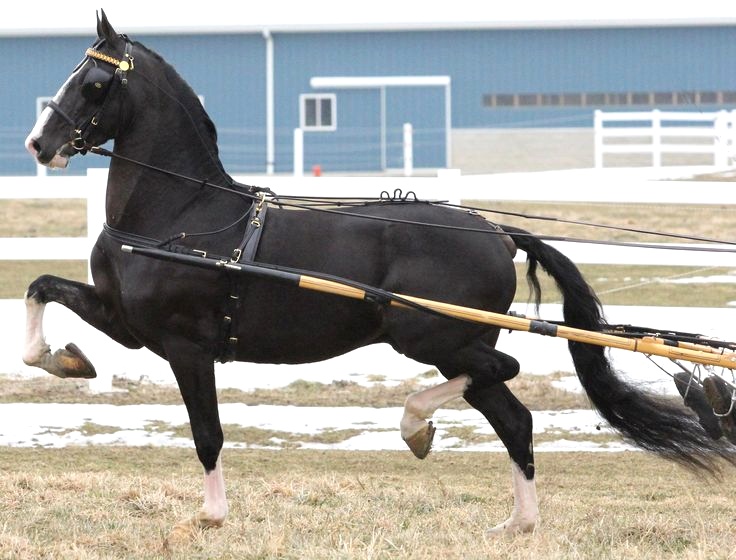Horses are herbivorous animals and require a balanced diet of hay, grain, and other nutrients to stay healthy. Hay is the primary source of nutrition for horses and is essential for them to stay healthy, so it is important to ensure that the hay you are feeding your horse is of the highest quality. Unfortunately, there are several types of hay that can be bad for horses, so it is important to understand what kind of hay is bad for horses and how to avoid it.
Types of Hay That are Bad for Horses
1. Moldy Hay:
Moldy hay can be very dangerous for horses, as it can contain toxins that can cause respiratory issues, colic, and even death. Moldy hay should be avoided at all costs, as even a small amount can be harmful to horses. It is important to inspect hay before feeding it to horses, as mold may not be visible to the naked eye.
2. Hay Contaminated With Pesticides:
Hay that has been treated with pesticides can be very dangerous for horses, as the chemicals can be harmful if ingested. It is important to be aware of any hay that has been treated with pesticides, as it can cause health issues for horses if it is ingested.
3. Poor Quality Hay:
Poor quality hay can be difficult for horses to digest and can cause digestive issues. Poor quality hay should be avoided, as it can often contain dust, dirt, and other contaminants that can be harmful for horses.
4. Wet Hay:
Wet hay can be a breeding ground for bacteria and mold, which can be very dangerous for horses. Wet hay can also be difficult for horses to digest and can cause digestive issues if ingested.
5. Hay with High Nitrate Levels:
Hay with high nitrate levels can be very dangerous for horses, as it can cause them to become ill if consumed in large amounts. It is important to test hay for nitrate levels before feeding it to horses, as high levels of nitrate can be very harmful.
6. Alfalfa Hay:
Alfalfa hay can be bad for horses if it is not fed in moderation, as it can contain high levels of calcium and protein that can be harmful to horses if consumed in large amounts. It is important to only feed horses alfalfa hay in small amounts and to ensure that the hay is of the highest quality.
How to Avoid Feeding Your Horse Bad Hay
1. Inspect Hay Before Feeding:
Before feeding hay to horses, it is important to inspect it for signs of mold, dirt, and other contaminants. If any of these contaminants are present, the hay should not be fed to horses.
2. Purchase Hay from Reputable Sources:
It is important to purchase hay from a reputable source that can provide hay of the highest quality. Purchasing hay from a reliable source can help to ensure that the hay is free of contaminants and is safe for horses to consume.
3. Store Hay Properly:
Proper storage of hay is essential to ensure that it is safe for horses to eat. Hay should be stored in a dry, well-ventilated area to prevent the growth of mold and bacteria.
4. Test Hay for Nitrate Levels:
Testing hay for nitrate levels is an important step to ensure that the hay is safe for horses to consume. High levels of nitrate can be very dangerous for horses, so it is important to test hay for nitrate levels before feeding it to horses.
5. Provide a Balanced Diet:
Providing horses with a balanced diet is essential to ensure that they receive the nutrition they need without consuming too much of any one type of hay. It is important to provide horses with a variety of hay, grain, and other nutrients to ensure that they stay healthy.
6. Monitor the Health of Your Horse:
Monitoring the health of your horse is essential to ensure that they are receiving the proper nutrition from the hay they are consuming. It is important to pay attention to any changes in the health of your horse, as this can be an indication that the hay being fed is not of good quality.
Conclusion
It is important to be aware of what kind of hay is bad for horses and to take steps to ensure that the hay being fed is of the highest quality. Moldy hay, hay contaminated with pesticides, poor quality hay, wet hay, and hay with high nitrate levels should all be avoided. It is also important to inspect hay before feeding it to horses, purchase hay from reputable sources, store hay properly, test hay for nitrate levels, provide a balanced diet, and monitor the health of your horse. Taking these steps can help to ensure that the hay being fed to horses is safe and of the highest quality.

